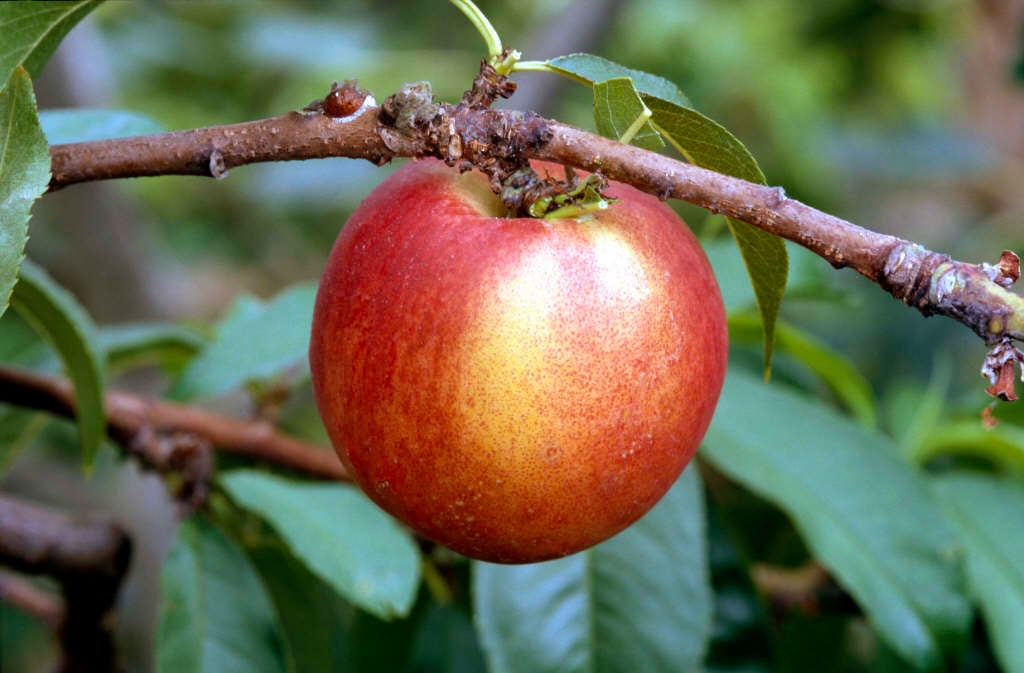Size
Ultimate height
2.5–4 metresTime to ultimate height
5–10 yearsUltimate spread
2.5–4 metresGrowing conditions
Moisture
Moist but well–drainedpH
Acid, Alkaline, NeutralColour & scent
| Stem | Flower | Foliage | Fruit | |
| Spring | Pink | Green | ||
|---|---|---|---|---|
| Summer | Green | Yellow Red | ||
| Autumn | ||||
| Winter |
Position
- Full sun
Aspect
South–facing or West–facing
Exposure
Sheltered Hardiness
H4Botanical details
- Family
- Rosaceae
- Native to GB / Ireland
- No
- Foliage
- Deciduous
- Habit
- Bushy
- Genus
Prunus can be deciduous or evergreen trees or shrubs with showy flowers in spring, and often good autumn foliage colour. Some have edible fruit in autumn, and a few species have ornamental bark
- Name status
Unresolved
How to grow
Cultivation
Grow in a moist but well-drained soil in full sun and in a sheltered position. Compact forms such as 'Nectarella' can be grown in a container in a peat-free, John Innes No 2 compost. Nectarines are self-fertile, so a pollination partner is not needed
Propagation
Propagate by seed, but the resulting fruit is rarely as good a quality as the parent. They are usually propagated by grafting
Suggested planting locations and garden types
- Cottage and informal garden
- Wildlife gardens
- Wall side borders
- Edible fruit
Pruning
Train fan-trained and Prune established fans. Alternatively, grow as a free-standing tree; pruning is the same as that for pruning acid cherries
Pests
Aphids, glasshouse red spider mite and brown scale can be problematic, especially on wall-trained or glasshouse-grown nectarines
Diseases
Protect nectarines from peach leaf curl which is the main problem. Silver leaf, brown rot and replant disease can also occur
Get involved
The Royal Horticultural Society is the UK’s leading gardening charity. We aim to enrich everyone’s life through plants, and make the UK a greener and more beautiful place.
